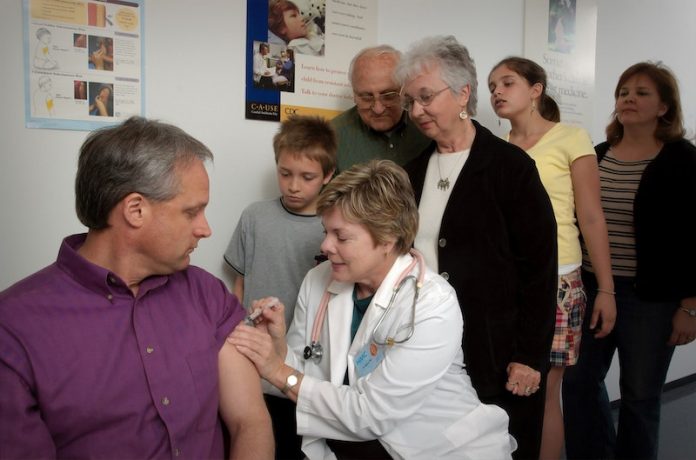
A tuberculosis vaccine developed 100 years ago also makes vaccinated persons less susceptible to other infections.
While this effect has been recognized for a long time, it is not known what causes it.
Their results are also important in the COVID-19 pandemic: several studies are currently testing the use of the vaccine in preventing severe disease progression in populations at risks such as hospital staff and elderly people.
In a new study, researchers have now presented a possible answer to this question.
The research was conducted by a team from Radboud University and elsewhere.
The BCG vaccine (the abbreviation stands for Bacillus Calmette-Guérin) is the only vaccine that provides effective protection against infections with the tuberculosis bacterium.
Since its first medical application in 1921, it has been used billions of times.
An unexpected side effect became apparent: vaccinated individuals not only contracted tuberculosis far less frequently but also other infections.
One example comes from Guinea-Bissau in West Africa: there, the mortality of vaccinated newborns was almost 40% lower than that of unvaccinated babies.
A similar effect has now been observed with other vaccines, almost exclusively with those based on live pathogens.
Experts also speak of ‘trained immunity’: the capacity of the innate immune response to become more efficient independently of the type of reinfection.
However, it is still largely unknown why this training effect can persist for years, even long after the immune cells that were circulating in the blood at the time of vaccination have died.
In the study, the team vaccinated 15 volunteers with the BCG vaccine and administered a placebo to five more people for comparison.
Three months later, they took both blood and bone marrow samples from these people
Some striking differences were found between the two groups. For instance, the immune cells in the blood of vaccinated individuals released significantly more inflammatory messengers.
These so-called cytokines strengthen the effectiveness of the immune defense; for example, they call on other immune cells for help and direct them to the site of infection.
Moreover, the immune cells of vaccinated individuals showed activity of completely different genes than in the placebo group, especially those required for cytokine production.
The BCG vaccination also causes long-term changes in the genetic program. The team found after vaccination, certain genetic material becomes more accessible, which means that it can be read by the cells more frequently.
This explains why the vaccination results in an enhanced immune response in the long term.
The results are also of interest against the background of the current COVID-19 pandemic: the researchers hope that a BCG vaccination might have a positive effect on the disease.
Although the trained immune system probably cannot prevent infection with the virus, it may reduce the risk of a severe course. This might benefit especially the particularly vulnerable medical staff.
However, until the results are available, the WHO does not recommend mass vaccination with the BCG vaccine, also in order not to jeopardize the supply in tuberculosis regions.
Tuberculosis claims more than one million victims every year, putting it at the top of the list of the world’s deadliest infectious diseases.
One author of the study is Prof. Dr. Mihai Netea from the Radboud university medical center in Nijmegen.
The study is published in the journal Cell Host & Microbe.
Copyright © 2020 Knowridge Science Report. All rights reserved.



